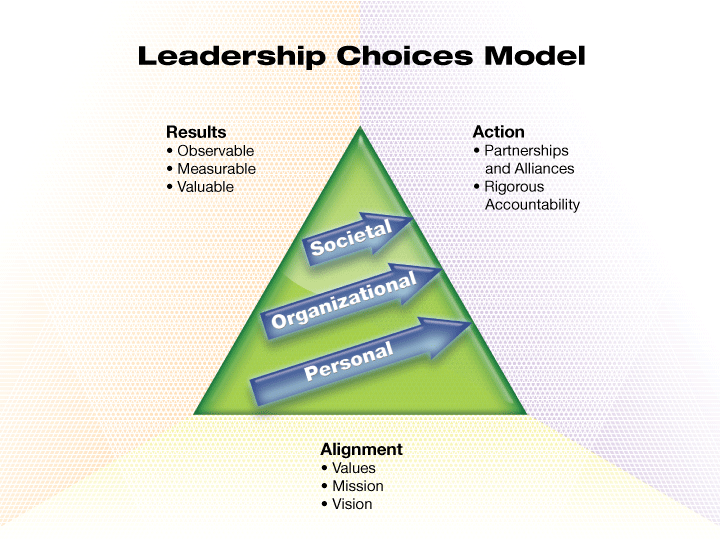
As we head towards 2025, keeping up with change is more important than ever. By then, half of all employees will need to learn new skills because of tech changes. This means we need strong talent development models to help people grow and adapt. But what are these models, and how do they shape the workforce? In this piece, we'll look at how these models boost skills and career growth. From creative training methods to tailored learning paths, they're about more than just keeping pace—they're about leading the way in a future where skills matter most. Let's dive into how talent development can powerfully impact skill growth in the years ahead.
Summary: Dieser Artikel beschreibt, wie Talententwicklungsmodelle im Jahr 2025 das Wachstum von Fähigkeiten beeinflussen und welche Strategien zur Förderung von Kompetenzen eingesetzt werden. Es wird untersucht, welche Auswirkungen diese Modelle auf die berufliche Weiterentwicklung haben.
How Do Talent Development Models Impact Skill Growth in 2025?
Exploring Talent Development Models
Defining Talent Development Models and Their Significance
Talent development models are strategic plans designed to enhance employees' skills and knowledge, ensuring the workforce aligns with company goals. These models encompass various elements such as training, mentorship, and learning opportunities. They foster a culture of continuous improvement and adaptation, which is crucial in the rapidly changing business environment. By focusing on talent development, companies can cultivate a team prepared for any challenge. Additionally, these models provide a competitive advantage by accelerating skill enhancement and improving employee retention.
A practical example includes a company utilizing a competency framework with AI assessments to identify skill gaps and customize learning paths for employees, aligning them with business needs, driving success.
Evolution of Talent Development Models
Talent development models have significantly evolved, transitioning from job-based training to a more skills-centric approach. Early models focused on standardized training, but technological advancements have introduced flexibility and personalization. Modern models prioritize essential skills over job titles, enabling companies to concentrate on the skills critical for success.
Today's models leverage AI to assess skills and develop personalized learning plans. This shift from generic training to tailored educational paths has increased the effectiveness and engagement of learning experiences for employees.
Emerging Trends in Talent Development Models for 2025
The Rise of Skill-Based Learning
Skill-based learning is becoming central to talent development, emphasizing the skills crucial for a company’s success. By focusing on skills rather than roles, companies can enhance workforce adaptability. In 2025, talent development will prioritize identifying, nurturing, and deploying specific skills. This involves understanding necessary skills, developing them, and adapting to technological and market changes.
The impact of this approach is substantial, allowing targeted development and ensuring employees possess the skills needed to excel. It also supports career growth by equipping employees with new skills, opening up more opportunities. Companies focusing on skills-based development experience benefits such as increased engagement, improved agility, and a strong return on investment in learning and development.

Personalized Learning in Talent Development
The trend towards personalized learning is transforming talent development, tailoring learning to fit individual needs and styles. By leveraging data and technology, companies can track performance and engagement, making learning more relevant. Personalized learning enhances motivation and engagement, leading to improved outcomes.
To attract and retain top talent, companies are updating traditional frameworks with generative AI, microlearning, VR/AR for practical skills, real-time feedback, and virtual coaching.
AI-Driven Talent Development Strategies
AI is increasingly integral to talent development, providing insights into employee skills, learning styles, and areas for improvement. AI facilitates the creation of learning plans that align with personal and company goals and supports adaptive learning systems that adjust based on real-time data, keeping employees challenged and engaged.
AI enhances the effectiveness of learning programs and can predict future skill needs. By 2025, many organizations will utilize AI to identify future skills and personalize learning, marking a significant shift towards AI-driven development strategies.
Immersive Learning Through VR/AR
VR and AR are revolutionizing talent development by offering immersive learning experiences. These technologies create realistic simulations and interactive environments that enhance engagement and retention. They are particularly beneficial for training that requires hands-on practice, such as technical skills or safety protocols. By immersing employees in realistic scenarios, these technologies make learning more effective.
Gamification in Learning and Development
Gamification is gaining traction in talent development by incorporating game elements like points and challenges into learning. It makes learning more enjoyable and taps into motivational drivers such as competition and achievement. Gamification can be applied in various areas, from training to performance management. By making learning enjoyable, it maintains interest and motivation, leading to better learning outcomes.
Implementing Talent Development Models Effectively
Utilizing Skills Mapping and Competency Frameworks
Effective implementation of talent development models requires understanding the necessary skills and competencies. Skills mapping and competency frameworks are vital tools for this purpose. Skills mapping assesses current and future needs, evaluates capabilities, and identifies gaps. Competency frameworks define the skills and knowledge required for different roles. In 2025, effective models will leverage dynamic skills mapping and frameworks, updated to meet new skill needs, and AI systems to match employees with opportunities based on their skills.
These tools help align development efforts with company goals, ensuring employees possess the skills for success.
Developing Leaders for the Digital Era
In the digital age, developing leaders is crucial. Modern leadership programs focus on digital literacy, agility, and leading through change. These programs employ experiential learning, coaching, and mentorship to build necessary skills. They are tailored with AI assessments and virtual coaching to develop digital fluency and strategic agility for managing hybrid teams and innovation.
By prioritizing leadership development, companies can cultivate leaders who drive innovation and transformation in a rapidly changing environment.
Technology-Enabled Learning Methods
Technology-enabled learning is a cornerstone of modern talent development. These methods utilize digital tools to enhance learning. E-learning platforms, mobile apps, and virtual classrooms offer flexible learning options. Technologies like AI, VR, and AR make learning personalized and interactive. By embracing these methods, companies can create scalable development programs that meet diverse needs.
Assessing the Impact of Talent Development Models
Key Metrics for Measuring Success
Measuring the impact of talent development is essential. Key metrics include engagement, skill acquisition, performance improvement, and retention. Companies utilize both quantitative and qualitative data to assess these. For instance, pre- and post-training assessments measure skill growth, while surveys gauge engagement and satisfaction. Performance metrics like productivity demonstrate the impact on business outcomes.
Companies focusing on skills-based development experience benefits such as increased engagement and retention, improved agility, and a solid ROI. By tracking these metrics, they can refine strategies for maximum effectiveness.
Successful Talent Development Case Studies
Examining successful case studies provides insights into best practices. For example, a tech company used AI assessments and personalized learning paths, enhancing engagement and skills, leading to increased innovation. Another example is a manufacturing firm using VR for safety training, reducing accidents. These cases illustrate how innovative development models can drive success.
Future Perspectives on Talent Development
Balancing AI-Driven and Human-Centric Models
The future of talent development will likely balance AI-driven and human-centric models. AI models use data to optimize learning, offering personalized solutions. However, human-centric models emphasize interaction and emotional intelligence. The challenge lies in finding the right mix of both to create effective strategies. As AI advances, its role will expand, but human elements will remain vital for a supportive learning environment.
Predicting Skill Growth by 2030
Predicting skill growth is crucial for future readiness. By 2030, digital skills like data analytics and AI will be in high demand. Soft skills such as communication and critical thinking will also be important. Companies can utilize analytics and planning tools to identify emerging needs. The World Economic Forum predicts that many will require reskilling by 2025, highlighting the need for effective models focused on skill growth. By addressing gaps and investing in development, companies can prepare for the future.
FAQs on Talent Development Models
Impact of AI-Driven Models on Future Skill Growth
AI-driven models will be pivotal in shaping skill growth by providing personalized learning experiences. They utilize AI to analyze performance, identify skill gaps, and suggest learning interventions. By offering adaptive paths and real-time feedback, they enhance engagement and accelerate skill acquisition. AI can also forecast future needs, aiding companies in developing necessary capabilities. As AI evolves, its impact on development will grow, enhancing workforce skills.
Benefits of AI in Talent Development Strategies
Using AI in talent development offers several advantages. It enables personalized learning by analyzing styles and preferences, ensuring content relevance. AI assessments provide insights into skills, facilitating targeted development. AI supports adaptive systems that adjust content based on performance, improving outcomes. It also automates tasks, freeing HR for strategic work. Overall, AI enhances efficiency and scalability in talent development.
Personalized Learning Paths and Employee Retention
Personalized learning paths significantly boost retention by enhancing engagement and career opportunities. Tailoring learning to individual needs makes employees feel valued. These paths provide clear goals, motivating investment in development. Consequently, employees are more likely to stay, reducing turnover costs. Personalized paths also contribute to a positive culture, prioritizing continuous learning and boosting retention.